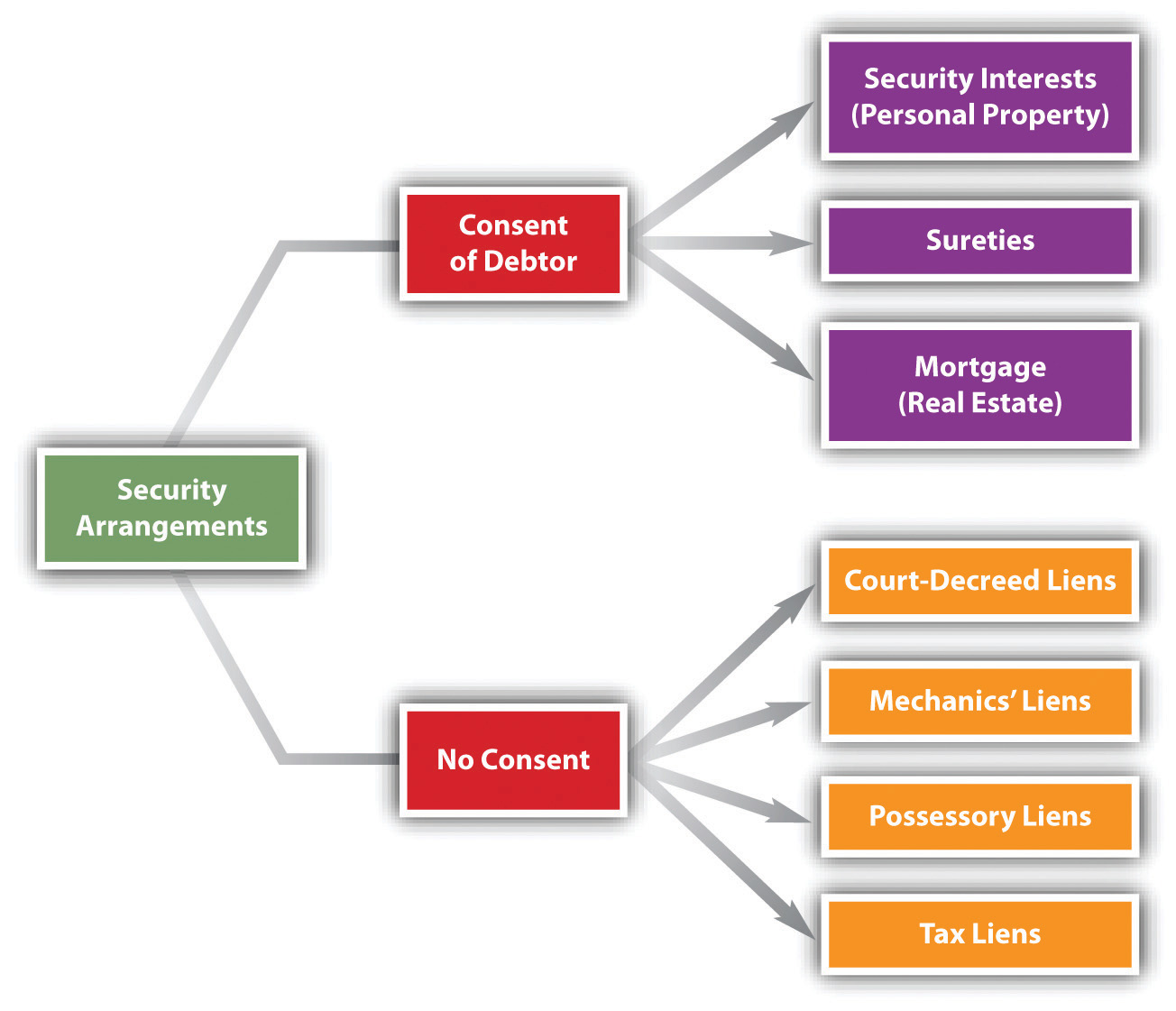
Interest: a financial charge for use of the lender's money.Principal: the original size of the loan, which may or may not include certain other costs as any principal is repaid, the principal will go down in size.The payments from the borrower are thereafter collected by a loan servicer. In such a situation, the initial lender is known as the mortgage originator, which then packages and sells the loan to investors. Lenders may also be investors who own an interest in the mortgage through a mortgage-backed security. Lender: any lender, but usually a bank or other financial institution.Borrower: the person borrowing who either has or is creating an ownership interest in the property.Restrictions may include requirements to purchase home insurance and mortgage insurance, or pay off outstanding debt before selling the property. Mortgage: the security interest of lender in the property, which may entail restrictions on the use or disposal of the property.The exact form of ownership will vary from country to country, and may restrict the types of lending that are possible. Property: the physical residence being financed.Although the terminology and precise forms will differ from country to country, the basic components tend to be similar: Mortgage lending is the primary mechanism used in many countries to finance private ownership of residential and commercial property (see commercial mortgages). All types of real property can be, and usually are, secured with a mortgage and bear an interest rate that is supposed to reflect the lender's risk. Īs with other types of loans, mortgages have an interest rate and are scheduled to amortize over a set period of time, typically 30 years. Therefore, a mortgage is an encumbrance (limitation) on the right to the property just as an easement would be, but because most mortgages occur as a condition for new loan money, the word mortgage has become the generic term for a loan secured by such real property. Mortgage loan basics Basic concepts and legal regulationĪccording to Anglo-American property law, a mortgage occurs when an owner (usually of a fee simple interest in realty) pledges his interest (right to the property) as security or collateral for a loan. 9.1 General, or related to more than one nation.5 Mortgage lending in Continental Europe.4.1 The mortgage loans industry and market.3.8 Competition among US lenders for loanable funds.3.6.3 Government National Mortgage Association.3.6.2 Federal National Mortgage Association.3.6.1 Federal Home Loan Mortgage Corporation.3.5 The United States mortgage finance industry.2.5 Foreclosure and non-recourse lending.1.4 Value: appraised, estimated, and actual.1.1 Basic concepts and legal regulation.In countries where the demand for home ownership is highest, strong domestic markets have developed. Few individuals have enough savings or liquid funds to enable them to purchase property outright.

In many countries, though not all ( Iran and Bali, Indonesia are two exceptions ), it is normal for home purchases to be funded by a mortgage loan. Features of mortgage loans such as the size of the loan, maturity of the loan, interest rate, method of paying off the loan, and other characteristics can vary considerably.


However, the word mortgage alone, in everyday usage, is most often used to mean mortgage loan.Ī home buyer or builder can obtain financing (a loan) either to purchase or secure against the property from a financial institution, such as a bank, either directly or indirectly through intermediaries. A mortgage loan is a loan secured by real property through the use of a document which evidences the existence of the loan and the encumbrance of that realty through the granting of a mortgage which secures the loan.


 0 kommentar(er)
0 kommentar(er)
